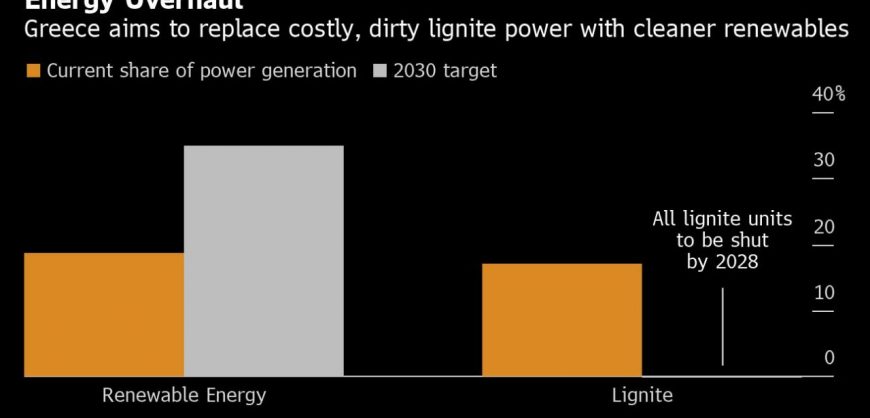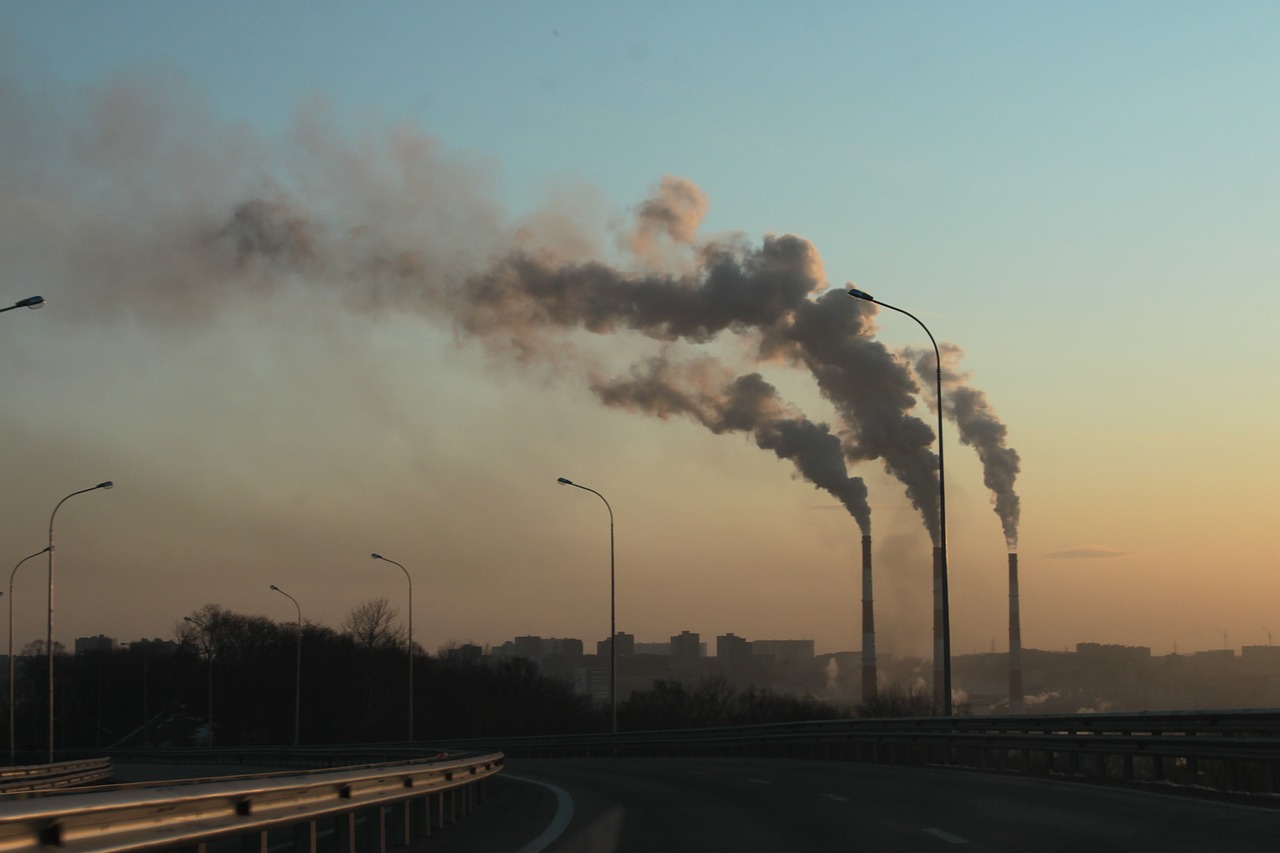Outside a city that once vied with Sparta in ancient Greece, giant excavators are grinding away vast chunks of the rocky landscape to get at a form of energy that’s now becoming a risk to the country’s future.
Legend has it that Megalopolis was where Zeus smote the Titans because the ground was known to smolder as if struck by the god’s lightning bolts. The reality is that the area in the southern Peloponnese region, like parts of northern Greece, has an abundance of lignite — a soggy form of coal that’s a major energy source for the country’s modern economy.
But in the age of global warming, the cost of pollution permits for burning the dirtiest fossil fuel has turned these aging power plants into money pits. The indebted state-owned Public Power Corp. SA will spend as much as 300 million euros ($330 million) this year to operate lignite facilities, compared with 200 million euros in 2018.
The dilemma is so bad that Greek officials say it would cost PPC less to pay workers to stay at home rather than produce at the most outdated facilities.
That puts Greece in a Catch-22. Shutting down the plants could starve the fragile economy of power, but the country — still recovering from its debilitating debt crisis a decade ago — can ill afford the money required to overhaul its electricity sector.
In a plan approved by cabinet last week, Greece’s government estimates that 44 billion euros in public and private investments will be needed over the next decade to meet its climate and energy goals.
“The era of dirty coal is clearly over,” Greek Prime Minister Kyriakos Mitsotakis said Monday at the United Nations conference in Madrid, where some 15,000 diplomats and environmentalists will discuss the threats posed by climate change. “Greece can be a paradigm of how energy transition and climate action can create green jobs and sustainable growth.”
The newly elected leader has vowed to close all 14 of Greece’s lignite-fueled power units by 2028. These plants account for over a fifth of the country’s electricity capacity, and are critical to local economies.
Read more: Bloomberg



































